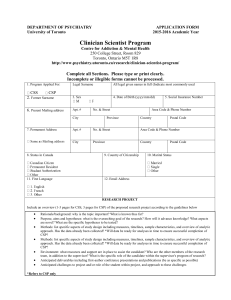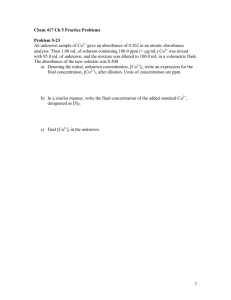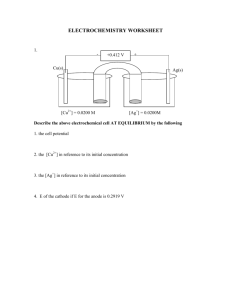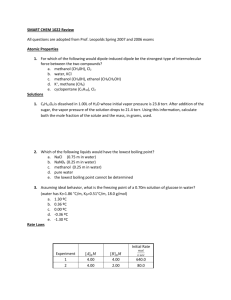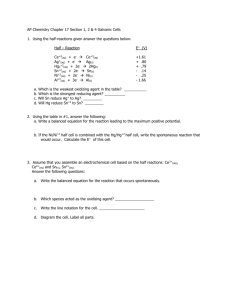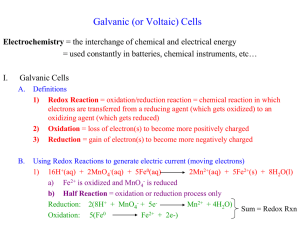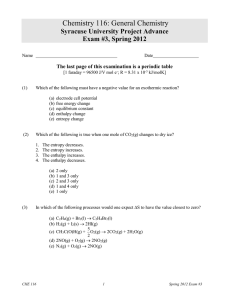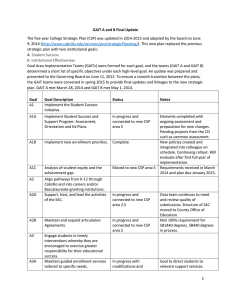April 12, 2002 Ø Today: Exam #3
advertisement
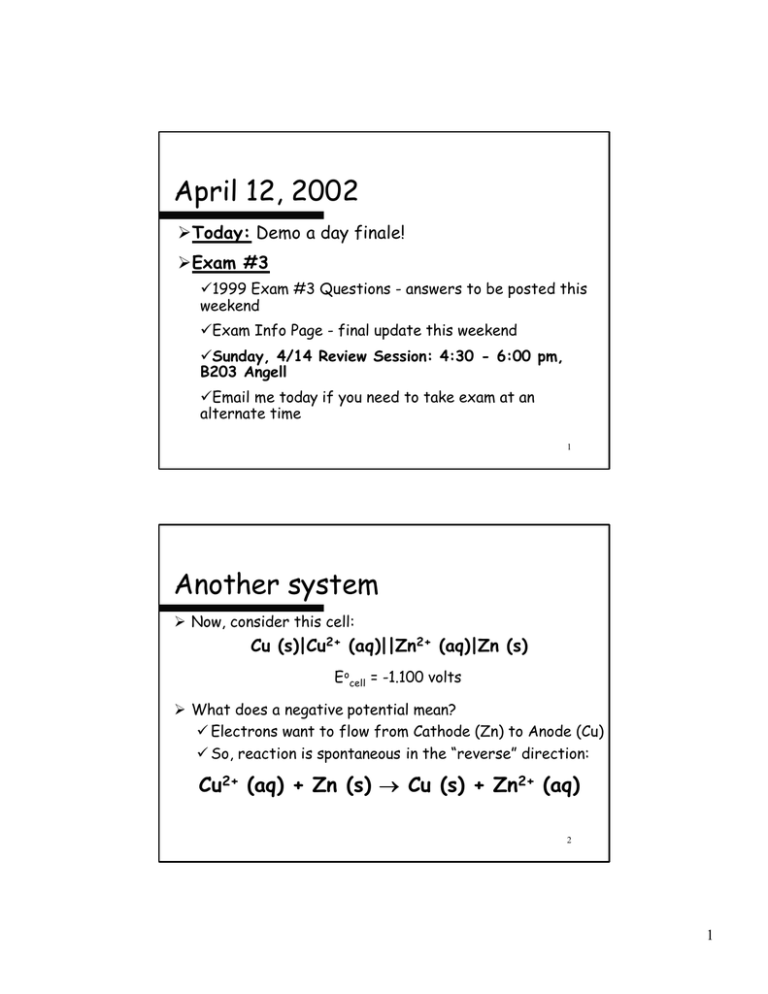
April 12, 2002 ØToday: Demo a day finale! ØExam #3 ü1999 Exam #3 Questions - answers to be posted this weekend üExam Info Page - final update this weekend üSunday, 4/14 Review Session: 4:30 - 6:00 pm, B203 Angell üEmail me today if you need to take exam at an alternate time 1 Another system Ø Now, consider this cell: Cu (s)|Cu2+ (aq)||Zn2+ (aq)|Zn (s) Eocell = -1.100 volts Ø What does a negative potential mean? ü Electrons want to flow from Cathode (Zn) to Anode (Cu) ü So, reaction is spontaneous in the “reverse” direction: Cu2+ (aq) + Zn (s) → Cu (s) + Zn2+ (aq) 2 1 Pulling Rank Ø Rank Ag, Cu and Zn based on their ability to cause reduction: ü Cu reduces Ag+ ü Zn reduces Cu2+ Ø So, as reducing agents: Zn > Cu > Ag How can we quantify this? 3 Quantifying Reduction By definition Ø Measure E ocell for reduction ½-cells with a reference ½-cell: 2H+ (aq) + 2e- → H2 (g) EoH = 0.0000 volts Standard Hydrogen Electrode (SHE) Tabulate as Standard Reduction Potentials (oxidizing power): Ag Eo +0.800 v > Cu > +0.337 v Zn -0.763 v 4 2 Calculating Eocell Cu (s)|Cu2+ (aq)||Ag+ (aq)|Ag (s) Anode (oxidation) Cathode (reduction) Cu (s) → Cu2+ (aq) + 2e - Ag+ + e- → Ag (s) Eoox = -EoCu = -0.337 v Eored = EoAg = +0.800 v 2 x [Ag+ + e- → Ag (s)] +0.800 v Cu (s) → Cu2+ (aq) + 2e -0.337 v Cu (s) + 2Ag+ (aq) → Cu2+ (aq) + 2 Ag (s) Or: 0.463 v = E ocell Eocell = EoCathode - EoAnode (right) (left) reduction potentials 5 The Thermodynamics Connection! Recall that: Which gives: work = charge x potential welectr = n FEcell mol e-/mol rxn Faraday’s Constant = 9.6487 x 104 C/mol e- For a reversible system at constant Temp and Pressure: wmax = -∆ ∆G So: ∆ Go = -n FEocell 6 3 What about K? Simple! ∆Go = -RTLnK = -n FEocell Rearranging gives: At 298.15K: Eocell = RTLnK nF Eocell = (0.0592/n)LogK 7 4


